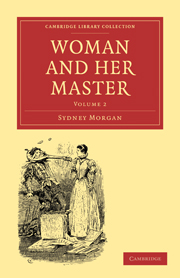Book contents
Summary
To the descendants of Hercules is poetically ascribed the foundation of the free state of Sparta. The physical force of the warrior people is expressed in this their fabled origin; for, having completely reduced the aborigines to subjection, they converted them into slaves. Their earliest institution thus divided their future population into two classes. The first, being trained to war, formed an aristocracy, on which the fate of Sparta depended; the second, or Helots, were predestined to tillage, and to unmitigated personal subjugation.
The Spartan community, then, exhibited the first elements of modern feudality; and the intruding colonists and conquerors governed by that strange political paradox, which is well expressed in an Athenian proverb, declaring that, — “in Sparta liberty, like slavery, knows no bounds.” The Spartan population, composed of iron-braced races, organically deficient in physical sensibility, soon became but the second state in Greece for political force, as it ever was the last in intellectual cultivation.
Lycurgus, the most influential of its legislators, one of those great master spirits, which impress the seal of their own genius on the society, whose elementary characteristics they embody, Lycurgus, a Spartiate by birth, and a philosopher and stoic by temperament, constructed his laws to accord with the rude fibre, which he had to direct and control. He followed the nature he found, rather than sought to change or improve it by any rule of civil institution.
- Type
- Chapter
- Information
- Woman and her Master , pp. 1 - 14Publisher: Cambridge University PressPrint publication year: 2010First published in: 1840

